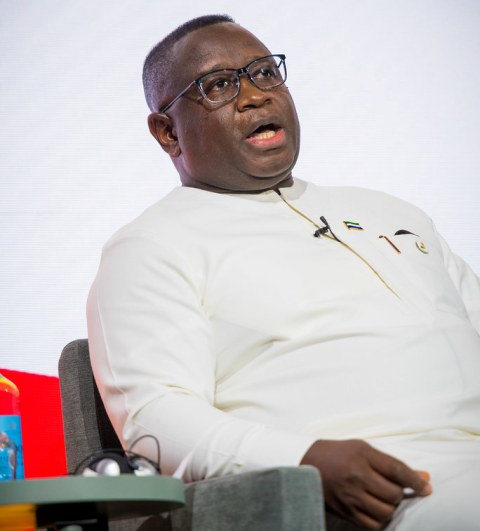NPPA Submits Compliance Reports to President Bio, Highlights Reform Progress
CEO Konneh explained that the NPPA’s assessment approach was data-driven and rooted in statutory requirements.

- Country:
- Sierra Leone
His Excellency President Dr. Julius Maada Bio has officially received the Annual Public Procurement Compliance Assessment Reports for 2020, 2021, 2022, and 2023. The reports were presented by Mr. Fodie J. Konneh, Chief Executive Officer of the National Public Procurement Authority (NPPA), during a formal ceremony at State House. The reports represent a crucial milestone in Sierra Leone’s effort to establish a transparent, accountable, and efficient procurement framework that underpins responsible public expenditure.
Comprehensive Assessment of 178 Public Entities
The four-year compilation evaluates procurement performance across 178 Ministries, Departments, and Agencies (MDAs), local councils, and government-funded initiatives nationwide. These reports assess the levels of compliance with procurement laws, highlight the efficiency of contract management, and analyze trends in procurement methods. Most importantly, they offer strategic recommendations to improve public procurement practices, enhance institutional capacity, and ensure optimal use of state resources.
CEO Konneh explained that the NPPA’s assessment approach was data-driven and rooted in statutory requirements. “This exercise fulfills our legal obligation to submit annual reports on procurement system performance. More than that, it provides a roadmap for procurement reform that reflects both achievements and areas needing improvement,” he said.
Key Improvements and Persistent Challenges
Among the most notable findings was a marked increase in the use of competitive procurement methods, especially open competitive bidding, which has emerged as the dominant approach across MDAs. The compliance rate has steadily improved, rising from 40 percent in 2021 to over 60 percent in 2023, signaling a clear trend toward enhanced accountability and legal adherence.
However, Mr. Konneh also drew attention to persistent systemic weaknesses that hinder full optimization of the procurement system. These include:
-
Poor recordkeeping and documentation practices;
-
Inadequate procurement planning;
-
Gaps in post-award contract monitoring and evaluation.
“These are not just procedural gaps; they impact the credibility of procurement outcomes,” he noted. “We need to address them systematically.”
Push Toward Digital Transformation
CEO Konneh emphasized the NPPA’s commitment to implementing digital procurement systems. He explained that digitization is not merely a technological upgrade—it is a transformational reform aimed at reducing inefficiencies, eliminating manual errors, curbing wastage, and fostering real-time transparency in public procurement.
“The digital shift will reduce face-to-face handling of procurement funds, thereby minimizing opportunities for corruption,” he stated. “We have already laid the groundwork for this transition.”
President Bio Praises Reforms, Encourages Continuity
In his remarks, President Julius Maada Bio thanked the NPPA for its diligent work and reaffirmed his administration’s support for effective procurement governance. He praised the Authority’s push toward a digital procurement ecosystem and encouraged the continuation of reforms.
“As a government, our priority is ensuring value for money. Institutions like NPPA play a pivotal role in safeguarding public funds and enforcing accountability,” the President said.
He further noted, “I particularly commend your efforts to digitize procurement. Reducing human contact in financial transactions will not only improve efficiency but also curtail corruption.”
President Bio also acknowledged the resource limitations under which the NPPA operates and lauded its staff for their dedication. He called for a culture of mentorship within the Authority, urging senior professionals to train and guide emerging procurement officers.
“You must inspire the next generation. This is not just a job; it is a public service essential to national development. The integrity of procurement systems must remain unshakable, even in the face of resistance,” he concluded.
A Milestone Toward Transparency and Good Governance
The presentation of the four consecutive compliance reports underscores Sierra Leone’s ongoing efforts to institutionalize transparent and accountable procurement practices. It demonstrates a commitment to international best practices and is expected to boost donor confidence, improve service delivery, and enhance public trust in government financial systems.
The reports also serve as a reminder of the importance of data-driven policymaking, the necessity for systemic reforms, and the role of strong institutions in shaping a better future for the nation.










